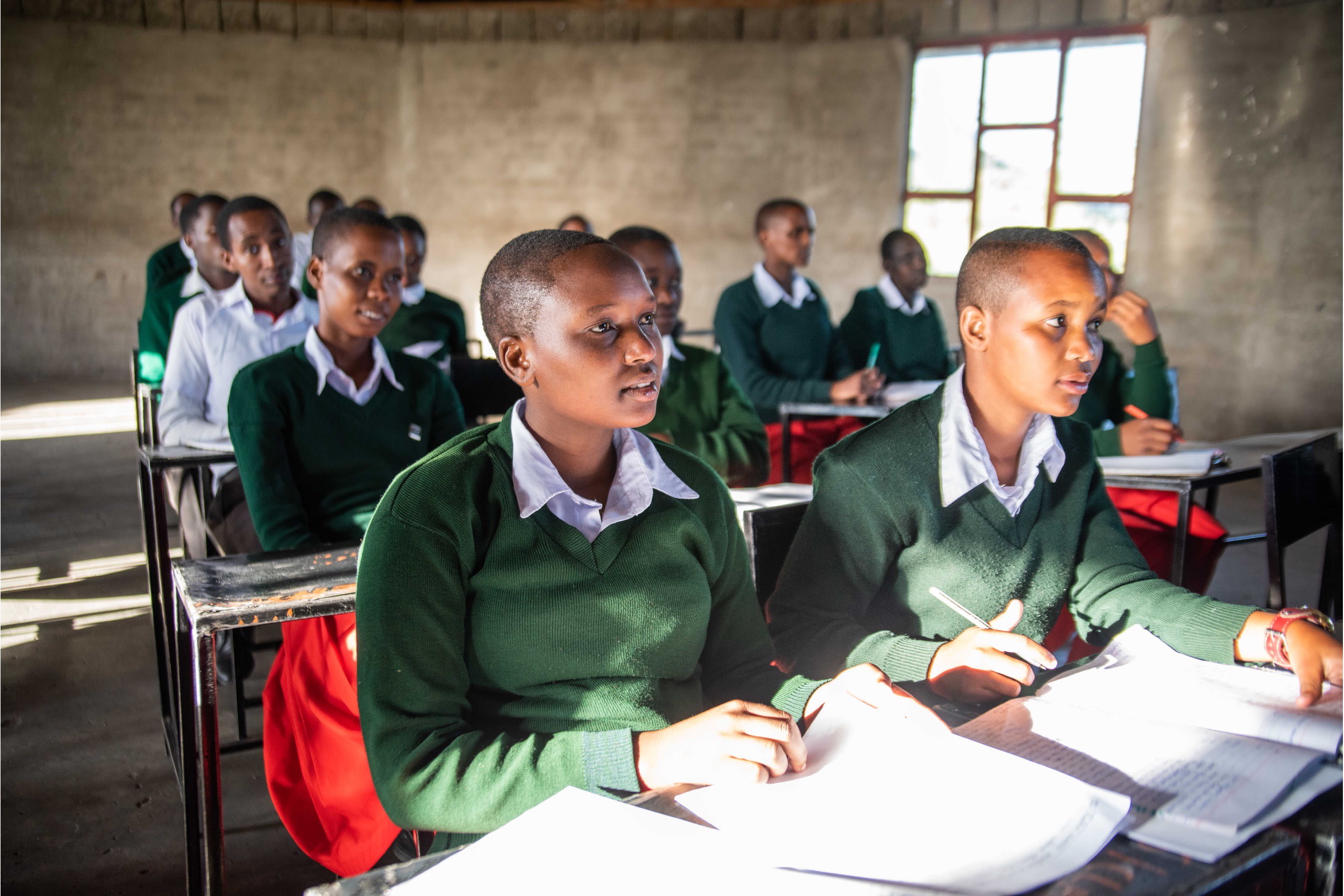
Pastoral Women’s Council introduced parent teacher associations (PTAs) to schools in northeastern Tanzania, significantly changing communities’ attitudes towards girls’ education and helping girls complete secondary school in the process.
In the pastoral communities of northeastern Tanzania, where cattle is the main source of income, girls face immense challenges in going to and completing school. Often, families from these historically marginalised communities do not place a high value on girls’ education or prioritise sending their daughters to school. Many families also regard girls as a source of income through their dowries, contributing to early child marriage and pregnancy. When girls do get the chance to pursue their secondary education, schools are often very far from their homes and lack basic resources such as access to clean water.
“Many men came to my father to seek my hand in marriage, but I begged my father to give me a chance to study," said Purity, a secondary school student from a Maasai family in the region. “Girls in my community have many responsibilities supporting our families, but little say in our lives.”
Pastoral Women’s Council (PWC), the oldest and biggest organisation focused on empowering pastoral women in Tanzania and Africa, used their Malala Fund grant to tackle these barriers to girls’ education by introducing parent teacher associations (PTAs) to five schools in two Masaai regions, Ngorongoro and Longido districts. Over three years, the PTAs reached close to 6,000 community members, significantly changing parents’ and communities’ attitudes towards girls’ education and increasing the number of girls attending and completing secondary school.
85% of students surveyed by PWC at the end of the intervention agreed that pastoral girls have education opportunities that are equal to boys, an increase from 12% before the intervention.
43% of students at the end of the intervention reported completing their last year of secondary school, an increase from 32% before the intervention.
Importantly, parents’ involvement in the PTAs led them to advocate for improvements in their children’s education. At Ngorongoro Girls Secondary School, students had to walk five kilometers to access clean water before the PTA lobbied village leaders to install a water access point near the boarding school.
"I couldn't concentrate on my studies as I always thought of running out of class to fetch water and return early for remedial studies,” said a girl who attends Ngorongoro School. “Now, I am happy I can fetch water anytime, which helps me concentrate well at school. I hope to pass my exams this year and, in the future, be the best teacher to help other girls who don't get the opportunity to be at school."
PWC also supported pastoral girls like Elizabeth to advocate for their own rights in their communities, providing them training in life skills and coaching to speak out at parents’ meetings.
“I am very happy now I can stand confidently to speak in front of people and am ready as a champion to speak for other girls who cannot raise their voices,” said Elizabeth. “I wish to inspire other girls at school until no girl is [left] behind and parents are supporting their daughters to [go to] school and taking action to end GBV in the community.”
PWC is now working to scale up their model to ensure all schools in pastoral areas can benefit from PTAs. In 2023, PWC with the support of the Tanzania Education Network (TENMET) successfully advocated the Ministry of Education to adopt PTAs as a key strategy to increase parents’ engagement in education and gender equity in pastoralist communities. The ministry subsequently developed a national guideline, Umoja wa Walimu na Wazazi (UWAWA), for establishing PTAs at the primary school level. The guideline is currently being implemented by district governments.